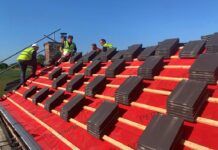 Concerns over the future of the Green Deal are still causing installers to stay away from the scheme, according to new research published by the Department of Energy and Climate Change (DECC).
Concerns over the future of the Green Deal are still causing installers to stay away from the scheme, according to new research published by the Department of Energy and Climate Change (DECC).
In September 2013, ICF International – working with BMG Research – was commissioned by DECC to carry out research with selected businesses that were not registered participants with the Green Deal supply chain. The aim of this study was to provide evidence on why certain types of business had chosen not to become Green Deal suppliers, and to examine whether there were any barriers to entry.
The study found a number of reasons why businesses were reluctant to join the Green Deal supply chain, such as the perceived low demand for the scheme, particularly when compared to opportunities outside of the programme. Despite the subsequent activity generated by the Green Deal Home Improvement Fund, the DECC-commissioned report said that this was a common concern with respondents and interviewees uncertain about whether there was sufficient demand to generate enough income.
This view is supported by the latest Green Deal figures published by DECC, which show that after almost two years, there are only 3,961 ?live’ Green Deals, meaning all measures have been fully installed in a property. The number of assessments remains high, with 422,436 lodged up to the end of November 2014, suggesting that there is interest in making energy efficiency improvements but not through the Green Deal.
The study also found that the most common reasons for avoiding participation with the Green Deal are linked to the structure and management of the scheme itself. Many expressed concern about the design of the Green Deal model, saying that it offered an overly ?complicated’ customer journey that was reflected by the lower levels of demand.
There was also a lack of sufficient knowledge about the programme, and the role of Green Deal suppliers within it. Some assessors and installers reported that there were gaps in their knowledge regarding the role of each type of supplier, and the size of the Green Deal market, and that information was not readily available.
Concerns were also expressed over the complex and expensive process of becoming certified under the scheme. It was believed by some respondents that the costs associated with training under the scheme would be difficult to recoup, owing to the low demand of the initiative.
All of these issues have led to concerns surrounding the stability and longevity of the Green Deal. Respondents and interviewees also cited past experience of government-led initiatives such as Home Improvement Packs, which had made them cautious about committing to Green Deal.
Criticism was also levelled at the market, such as installers of external wall insulation (EWI) and hard-to-treat cavity wall insulation (CWI) claiming that homeowners are unaware of the benefits of better insulation. According to one installer:
“People don’t really understand how much benefit you can get from treating ?hard to treat’ cavities. They don’t want the disruption and they don’t understand the benefits.”
Despite these issues, some respondents reported that the potential benefits of Green Deal supplier status (most notably the market opportunity should demand reach levels that they considered necessary) were sufficient to make them consider certification in the future. Installers of EWI and CWI also noted that their decision was affected by take-up within the industry as a whole; if other parts of their supply chains were to put pressure on them to participate, then they would consider doing so.




